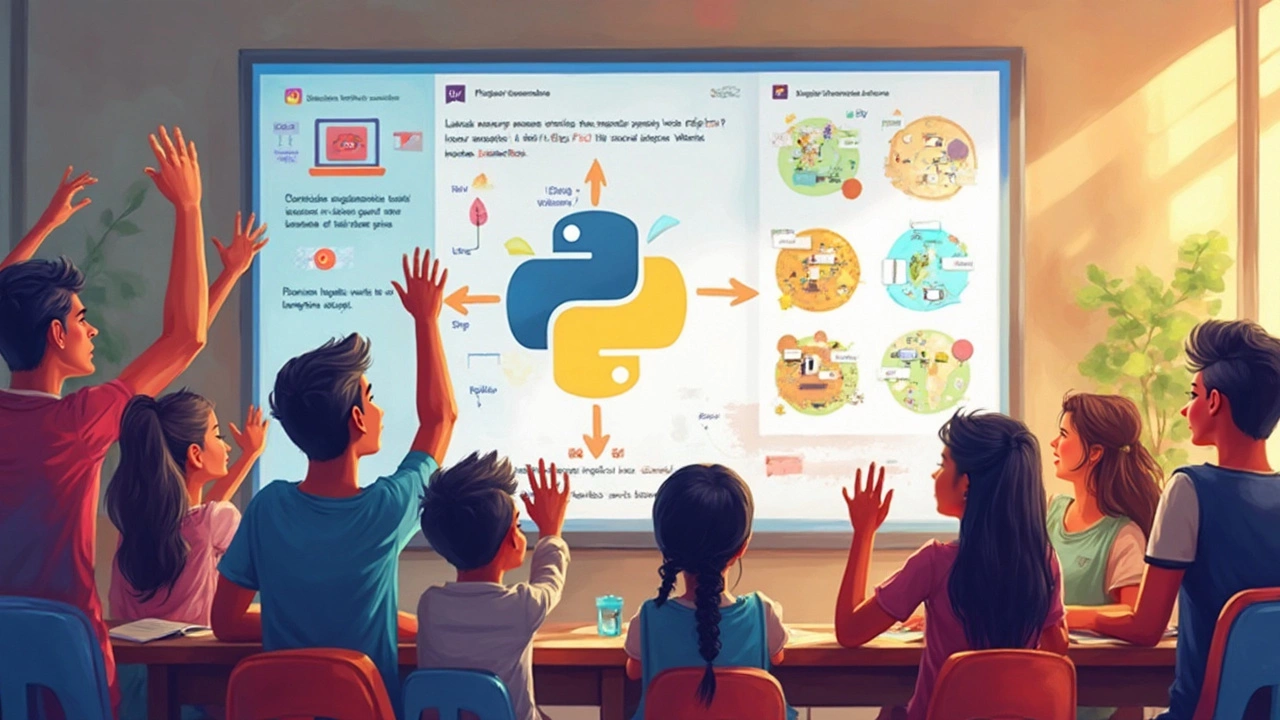Python Basics: Quick Guide to Learn Programming and Start Coding
If you’ve heard the buzz around Python and wonder if it’s worth your time, the answer is a clear yes. Python powers everything from simple scripts to AI, web apps, and data analysis. It reads like plain English, so you can focus on ideas instead of tangled syntax. Below you’ll get the why, the how, and a few easy steps to get your first program running.
Why Python is a Must‑Know Skill
First, Python is everywhere. Companies like Google, Netflix, and startups use it for backend services, automation, and machine learning. Second, the community is massive – you’ll never run out of tutorials, free courses, or code snippets. Third, the job market loves it; many entry‑level tech roles list Python as a required skill. Finally, the language scales. You can start with a small script to clean a spreadsheet and later build a full‑stack web application without switching languages.
Practical Steps to Start Coding Today
1. Install Python – Go to python.org, download the latest version, and run the installer. Tick the box that adds Python to your system path.
2. Pick a simple editor – VS Code, Sublime Text, or even Notepad++ work fine. Open a new file and save it as hello.py.
3. Write your first line – Type print("Hello, Python!") and run it from the command line with python hello.py. If you see the message, you’re in business.
4. Follow a short tutorial – Sites like Codecademy, freeCodeCamp, and the official Python Docs offer beginner‑friendly lessons that cover variables, loops, and functions in bite‑size chunks.
5. Build a tiny project – Choose something useful – a to‑do list, a random quote generator, or a basic calculator. Applying what you learn cements the concepts.
6. Join the community – Register on Stack Overflow, join Python subreddits, or attend local meetups. Asking questions and reading others’ solutions speeds up learning.
Remember, the key is consistency. Even 15 minutes a day adds up quickly. By the end of the first week you’ll be comfortable with basic data types, and by the month you’ll be writing functions and handling files. Keep experimenting, and soon you’ll see why Python is called the "programmer’s Swiss army knife".
Ready to dive deeper? Check out our other posts on coding, e‑learning platforms, and programming basics – they’ll give you extra tips and resources to keep the momentum going.
Most Useful Code to Learn: What's Worth Your Time?
Trying to choose the most useful coding language can be overwhelming with endless options everywhere you look. This article lays out why some languages are more practical, what makes one stand out, and how real-world needs matter more than hype. You'll get tips to pick a code language that actually leads to results, not just frustration. Whether you're a parent guiding your kid or an adult picking up coding, you'll find answers here. Know what to focus on—so you (or your kid) spend time learning what really counts.
read moreIs Python Hard to Learn?
Python is often praised for its simplicity, but is it truly easy for everyone to learn? This article explores its user-friendly syntax, essential concepts, and the resources available for beginners. Dive into Python's practical applications and find out if it's the right coding language for your needs. Get some handy tips to make your Python learning journey smoother.
read moreMastering Python: A Comprehensive Guide for Beginners
Learning Python can vary in time depending on a person's prior experience and the amount of time they can dedicate to studying. Python, being a versatile and beginner-friendly language, attracts a variety of learners. Through structured guidance and practical experience, mastering Python becomes achievable within months. The journey can be enriched by utilizing diverse resources like online tutorials, books, and coding bootcamps. With consistent effort, one can gain proficiency in Python and eventually leverage it in real-world applications.
read moreIs Learning Python a Breeze? Unraveling the Secrets of This Popular Language
Learning Python is often praised for its simplicity and readability, making it a popular choice for beginners delving into coding. This article examines Python's learning curve, its structure emphasizing clean and concise code, and resources available for new learners. Discover interesting facts, habits, and strategies to efficiently tackle Python and highlight its versatility across various applications. The article aims to provide an engaging journey into the basics and beyond of Python programming.
read more


